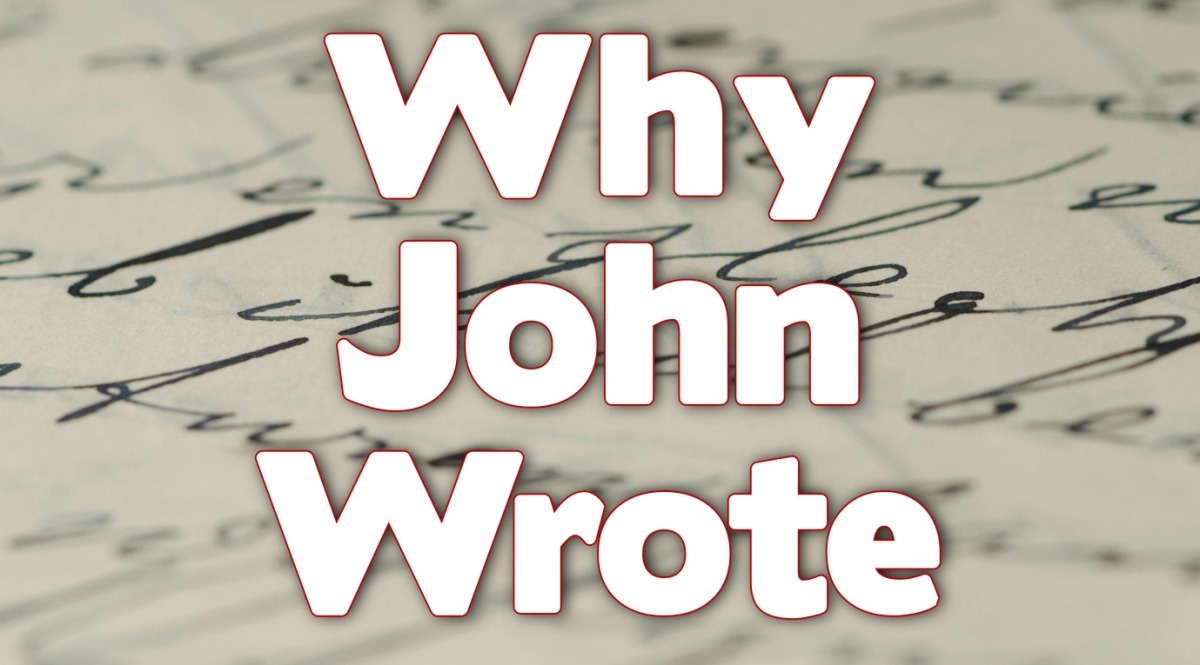Today’s reading is 1 John 2.
I keep referring to First John as a sermon. Obviously, this is a written documents. John repeatedly says things like, “I am writing to you.” However, the format of this writing is more like the gospel record of John than the writings we call Second and Third John. Notice both of those writings start and end with epistolary greetings and closings. John knew how to write a letter the way folks wrote letters in the first century. What we call First John doesn’t use those same conventions. Based on that, I think this first “letter” is more accurately seen as a sermon that John wrote, had delivered to congregations, and then wanted presented by messengers in those churches as a sermon following up his gospel record.
Why did he feel the need to do this? He actually mentions multiple times his reason for writing. As we saw in yesterday’s discussion, he wrote so folks wouldn’t sin. He digs a little deeper however in a semi-poetic section found in 1 John 2:12-14.
The section prompts all kinds of questions for modern readers. It’s oddly repetitive. It contains some strange grammatical nuances. We struggle to know who the children, the fathers, and the young men really are. And, of course, as often is the case, everyone who comments on the passage wants to discover some incredibly profound point in the odd section.
Perhaps, we can best understand this semi-poetic explanation not by first considering what he said, but by recognizing what he did not say. John did not say, “I’m writing to you, little children, because you are lost in sin and need to find God.” He did not say, “I’m writing to you, fathers, because you are spiritually immature and need to meet Jesus.” He did not say, “I’m writing to you, young men, because you are weak, ignorant, and beaten by the enemy.” In other words, John did not write to this particular group of Christians because they were walking headlong to hell and needed to be straightened up before it was eternally too late. He was not rebuking or correcting that particular group of Christians. He did not write to them because they were walking in darkness and needed to get back to the light. John wrote to this group precisely because they did know Jesus, they were forgiven, they were in fellowship with God, they were mature, strong, victorious.
Of course, we are reading someone else’s mail. John didn’t write this letter to us. Just because we read these words, doesn’t mean they accurately describe us. Many who read John’s sermon do not have their sins forgiven, do not know Jesus or the Father, are not mature, strong, and victorious. However, these statements do describe John’s original, intended audience. Recognizing this provides us with a powerful warning.
John essentially says his original, intended audience was standing in a good spot. They were forgiven, they were walking in the light, they were in fellowship with both Father and Son, they were strong and mature, they were defeating the devil. Why then did John need to send them this sermon? Because standing in that place, they were targets.
While John could say all these great things about the congregation when he wrote, in 1 John 2:18-19, he had to say it hadn’t been too long before the sermon that group of Christians had “antichrist” among them. The enemies of Jesus had left because they finally admitted they really weren’t following Jesus. But they had been there for a time. Further, in 1 John 2:26 and 3:7, John explained deceivers wanted to lead these Christians astray. Do not miss, this means it is possible for strong Christians to get led astray. Further, according to 1 John 5:13, it seems even for those in such a good place as John’s audience, doubt always lurks around the corner. All disciples deal with doubts, but we must take care. Doubts can grow to deceive and destroy the best of disciples.
Here’s our takeaway. Certainly, if you don’t actually have your sins forgiven in Jesus Christ because you aren’t walking in the light, don’t take comfort from John’s poem. However, if the poem applies to you too, don’t let your guard down. The enemy targets us. If our confidence in Christ becomes complacency, we become easy prey. We need to take this sermon seriously so together with our brothers and sisters we will stay in the light and continue in victory to the very end.
Tomorrow’s reading is 1 John 2.
PODCAST!!!
PATHS:
Discuss Today’s Meditation with Your Family
How does 1 John 2 prompt or improve your trust in God?

